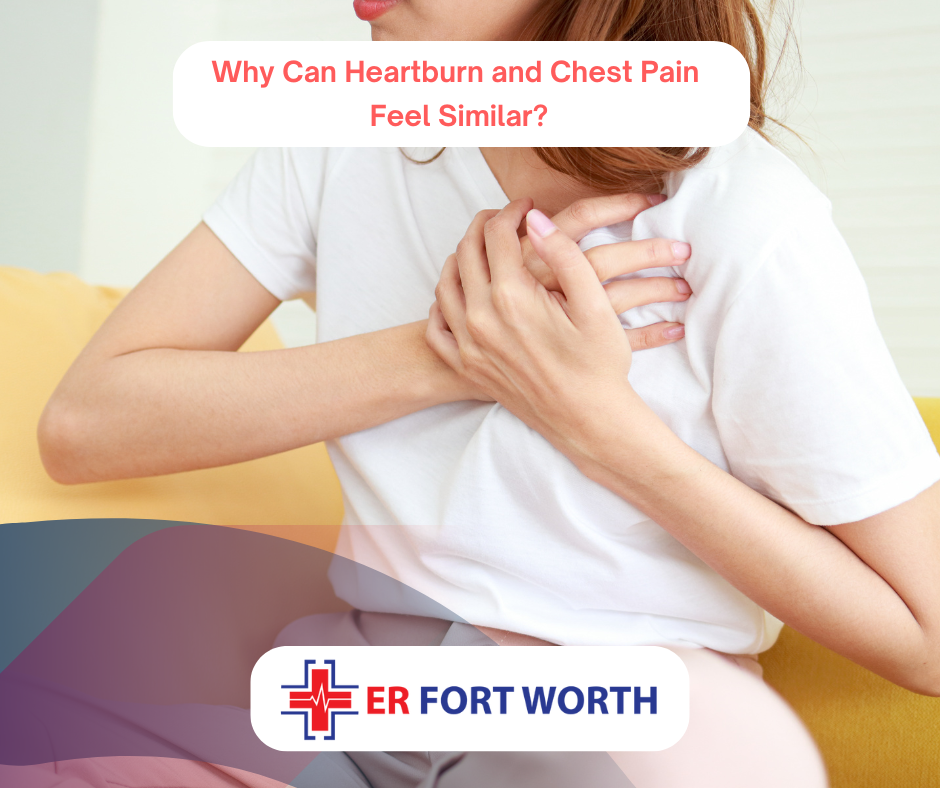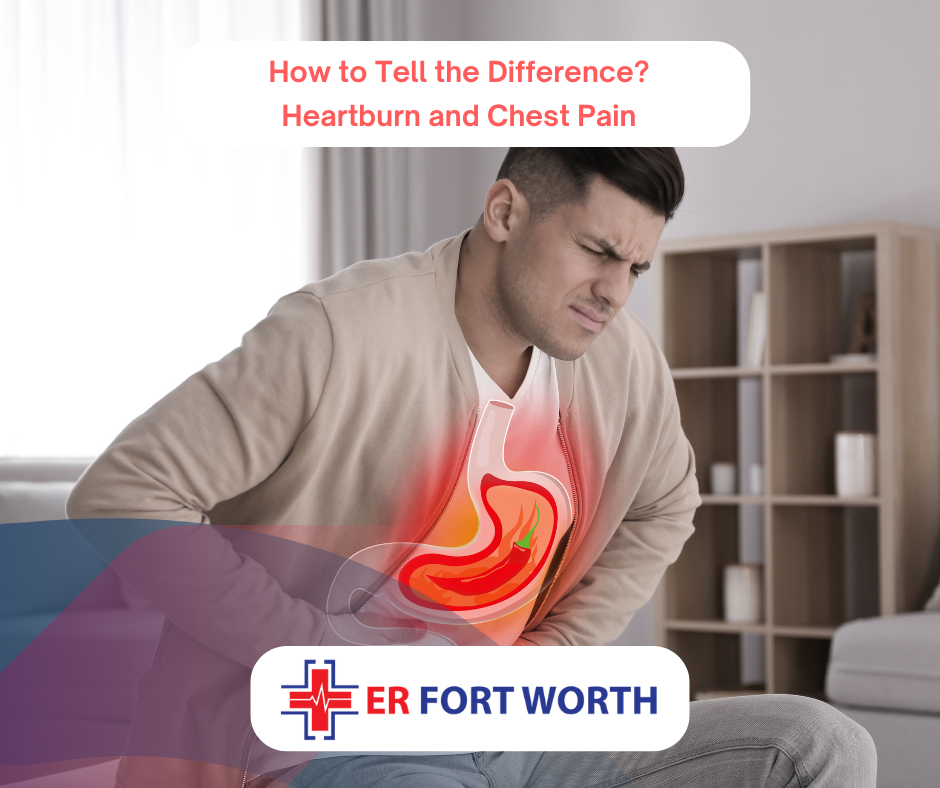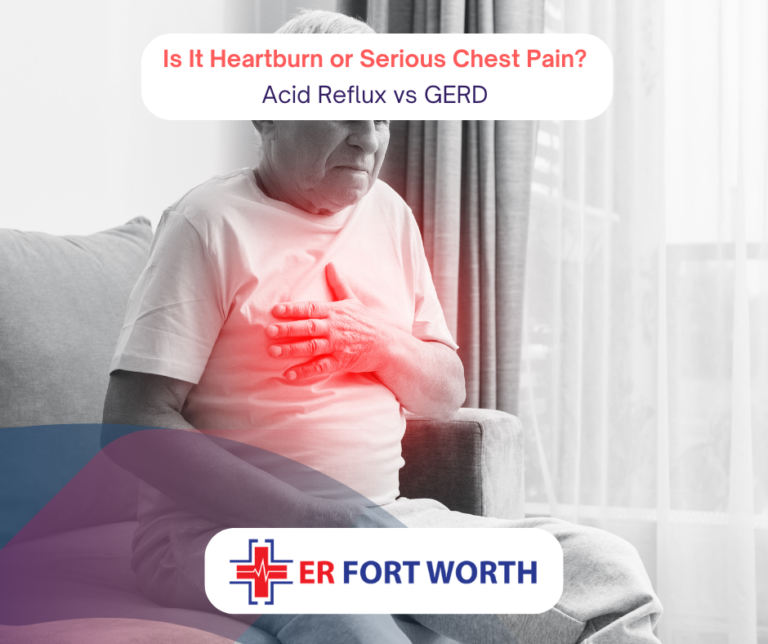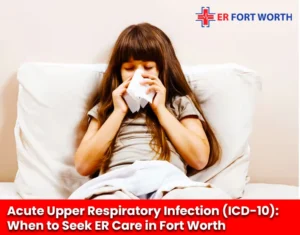From Fourth of July feasts to late-night snacks, heartburn and chest pain are unwelcome guests at your table. These discomforts can linger like the tension before a big game or the regret after overindulging, impacting daily life of millions of Americans.
Heartburn typically results from acid reflux, where stomach acid flows back into the esophagus, causing a burning sensation in the chest. When this becomes chronic, it may signal gastroesophageal reflux disease, or GERD, which is a serious condition that can lead to complications if left untreated.
But how do you tell if it’s just heartburn or something more serious? This guide explores heartburn and chest pain, discussing their causes, symptoms, and offering effective ways to manage these conditions.
Why Can Heartburn and Chest Pain Feel Similar?

Heartburn and chest pain are often confused due to their shared discomfort in the chest area, often with a burning sensation. The location of pain in both cardiac and non-cardiac chest pain
overlaps, making it challenging to distinguish them solely by location. Up to 70 million individuals in the U.S. experience non-cardiac chest pain (NCCP), according to the American
College of Gastroenterology.
Both conditions feature a burning sensation. Heartburn is typically caused by stomach acid irritating the esophagus, while chest pain can stem from various causes, including coronary
artery disease or myocardial infarction. Chest pain can radiate to other areas like the neck, jaw, or arms, complicating differentiation. Overlapping symptoms exacerbated by specific foods or
positions can also blur the line between heartburn and certain types of chest pain.
GERD (gastroesophageal reflux disease) can contribute to both heartburn and more severe chest discomfort. Therefore, understanding heartburn, GERD, and acid reflux symptoms is
crucial for accurate diagnosis and management.
Heartburn Symptoms:
● Causes a burning sensation in the chest, especially after consuming acidic or spicy foods or lying down
● May lead to a sour taste in the mouth
● Discomfort in the upper abdomen
Acid Reflux Symptoms:
● Burning sensation in the chest or throat (heartburn)
● Discomfort worsens after meals or when reclining
● May cause chest pain, difficulty swallowing (dysphagia), and a sensation of food sticking in the throat
Gastroesophageal Reflux Disease (GERD) Symptoms:
● More persistent and severe than occasional heartburn or acid reflux
● Includes frequent heartburn and chest pain, often behind the breastbone
● Involves regurgitation of acidic material into the throat or mouth, difficulty swallowing, chronic cough, or hoarseness
By understanding these symptoms, individuals can seek timely medical intervention and appropriate treatment, reducing discomfort and significantly improving their well-being.
How to Tell the Difference?

Chest pain or discomfort, including heartburn, is a symptom that people often experience during a potential heart attack, but it can also indicate other underlying issues.
To distinguish between cardiac chest pain and gastroesophageal reflux disease symptoms, doctors often ask the following questions:
Timing and Triggers
● Do your symptoms typically occur after consuming certain types of foods like spicy, greasy, or acidic foods?
● Does the discomfort intensify when lying down or bending over?
Relief from Medications
● Have you found relief from over-the-counter medications such as antacids for your symptoms?
● How long does this relief usually last? (This inquiry assesses whether the symptoms respond to typical acid reflux remedies, indicating GERD-related chest discomfort.)
Associated Symptoms
● Do you notice a sour or acidic taste in your mouth after meals?
● Have you experienced difficulty swallowing (dysphagia) alongside the chest discomfort? (These symptoms are common in GERD and help distinguish it from other causes of chest pain.)
Frequency and History
● How often do you experience these symptoms?
● Have you had episodes of heartburn or acid reflux in the past, and if so, how severe were they?
These questions enable doctors to differentiate between non-cardiac chest pain related to GERD and cardiac chest pain, ensuring appropriate treatment and management strategies, including gastroesophageal reflux disease treatment.
When To Seek Help
If you experience symptoms that are uncertain, it’s important to consult your healthcare provider. Additionally, if you feel tightness in your chest, begin sweating, turn pale, feel extreme weakness, or faint, we advise seeking immediate care at the emergency room.
Heartburn is often very uncomfortable and occurs frequently after eating. Over-the-counter (OTC) medications and lifestyle changes, such as eating smaller portions, losing weight, exercising, quitting smoking, and avoiding lying down immediately after meals, usually provide relief. If these measures are not effective, consult your doctor for additional treatment options and to further diagnose the underlying cause of your chest pain.
Evaluate Your Chest Pain Symptoms Now
FAQs
How do I know if it’s heartburn or chest pain?
Both heartburn and heart attacks can lead to intense sensations in the chest. A key distinction is that during a heart attack, the sensation typically resembles pressure, tightness, or squeezing
rather than pain. This feeling might extend upwards towards the left shoulder, arm, and neck.
How do you know if you have gas pain or heart pain?
Chest pain from cardiac issues is typically experienced in the center or left part of the chest, whereas pain related to gas may be more spread out and focused in the upper abdomen or lower chest area.
What is the best heartburn medication?
There isn’t one type proven better than others, but you might find one that suits your symptoms better. Over-the-counter options include esomeprazole (Nexium), lansoprazole (Prevacid), omeprazole (Prilosec), and omeprazole/sodium bicarbonate (Zegerid).
How can you tell the difference between acidity and chest pain?
The location of the pain often leads to confusion with a heart attack. In acid reflux, symptoms can include pain spreading up towards the throat but not extending to the arms or legs. Pain worsens when bending over or lying down. Additionally, you might experience a sour or acidic
taste in the back of the throat.




